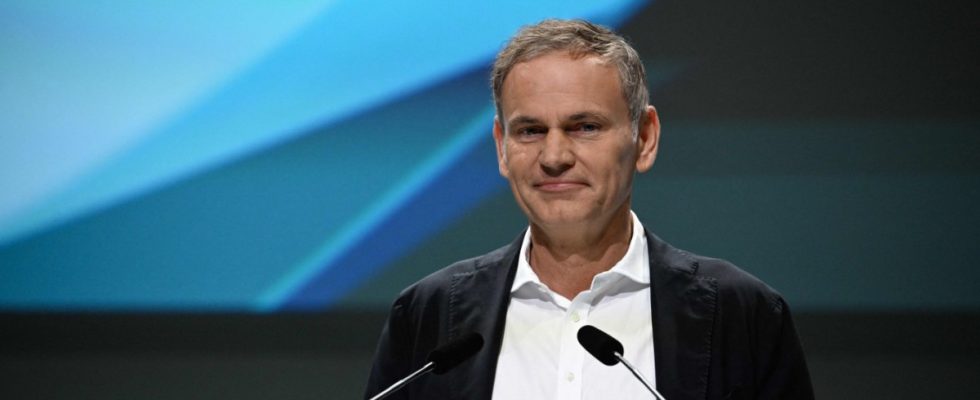The comparison with the fitness center fits quite well, says VW boss Oliver Blume: If a group of people train there, everyone gets a little fitter, it strengthens the entire team in the end. This is how the manager, who is enthusiastic about sports, imagines it for the individual brands in the large VW group. Some, such as Porsche, are already at a very high level of training, while others, such as the Volkswagen brand, are still struggling at a lower fitness level. Blume’s strategy: Each brand gets its own training plan in order to make the entire car manufacturer fitter – i.e. more profitable – at the end of the day.
Above all, this plan should convince the investors, about 200 listened on Wednesday at the Hockenheimring to what the VW boss and his CFO Arno Antlitz have come up with as a new corporate strategy. The work of persuasion is urgently needed, since the sports car manufacturer Porsche alone is worth more than the rest of VW on the stock exchange. Many from the group find this absurd, although the major construction sites there have long been obvious: problems with the software, fixed costs that are too high, less market share in China. “The automotive industry is changing at an unprecedented pace,” said Oliver Blume. “We have to further accelerate our own transformation in order to secure and expand our competitiveness.”
It’s now about margin, not quantity
The goals are ambitious. The VW Group wants to increase sales by five to seven percent every year until 2027, according to the presentation for the capital market on Wednesday. Growth is planned for the time thereafter, which is based on the development of the industry. Volkswagen has set a target of between eight and ten percent for the operating return by 2027. By the end of the decade, the range was raised to nine to eleven percent. In 2022, the operating return before special items was 8.1 percent.
It is also a departure from the previous strategy of primarily focusing on mass, i.e. generating profit through the highest possible sales figures. “Value over Volume”, on the other hand, is to be called in the future, which means nothing other than that it is now primarily about the margin and no longer about the number of cars sold. But that also means that savings have to be made, especially at the core brand VW, where the profit margin was recently only three percent. The brand should save ten billion euros over the next three years in order to bring the margin to 6.5 percent by 2026. The other brands in the group now also have their own return targets, but no other brands have currently announced comparable savings programs.
VW also wants to get to the expenses. The investment ratio is expected to drop to less than eleven percent of sales by 2027. For this year, the Wolfsburg have planned a share of 14.5 percent of the proceeds for capital expenditure. The top management also explained what the group intends to spend money on in the next few years. Of the planned 180 billion euros, around 15 billion will go to group-wide issues, for example the planned growth in North America or the new China strategy. The group wants to invest just as much in everything to do with batteries, i.e. cell production or battery recycling.
After all, VW is also going on the offensive on its capital market on another sensitive issue: After protests on the sidelines of the annual general meeting and criticism from investors, Volkswagen is preparing an independent investigation at its plant in the Chinese Uyghur region of Xijiang. “We are planning a transparent, independent external audit to give the public full transparency,” said CEO Blume on Wednesday. There are currently good talks with partners in China regarding such an examination, said Blume. The plant in the city of Urumchi is operated by the Chinese joint venture partner SAIC. According to human rights organizations, the Muslim Uyghur minority living in the province of Xinjiang is being specifically suppressed by the central government in Beijing.

